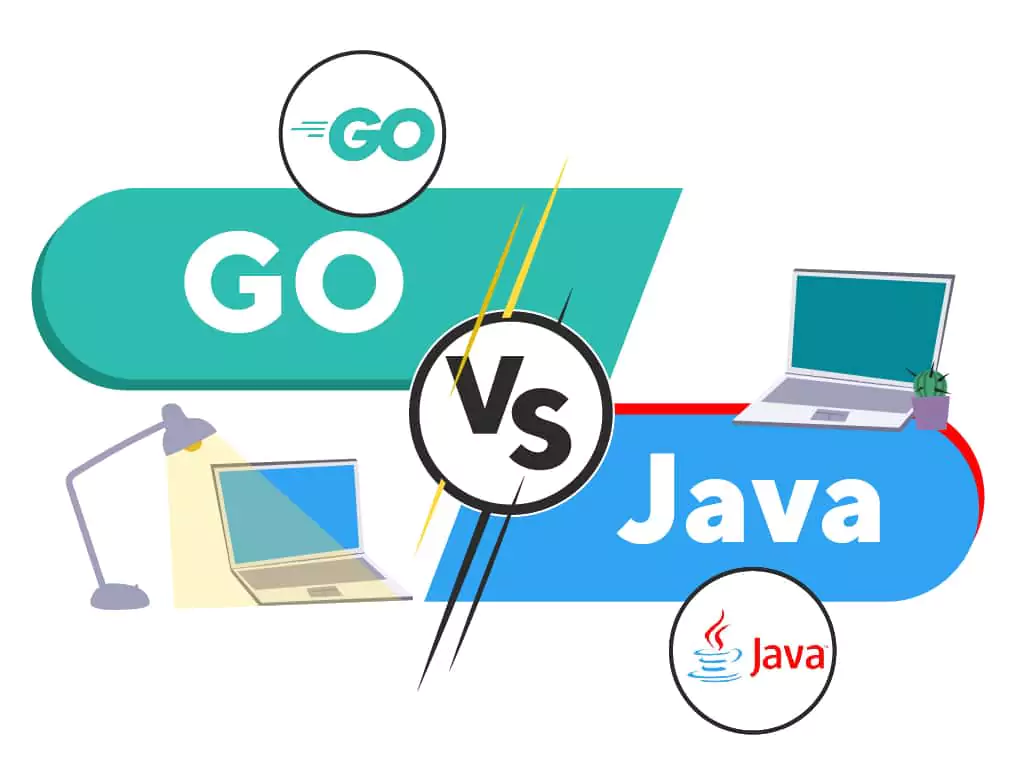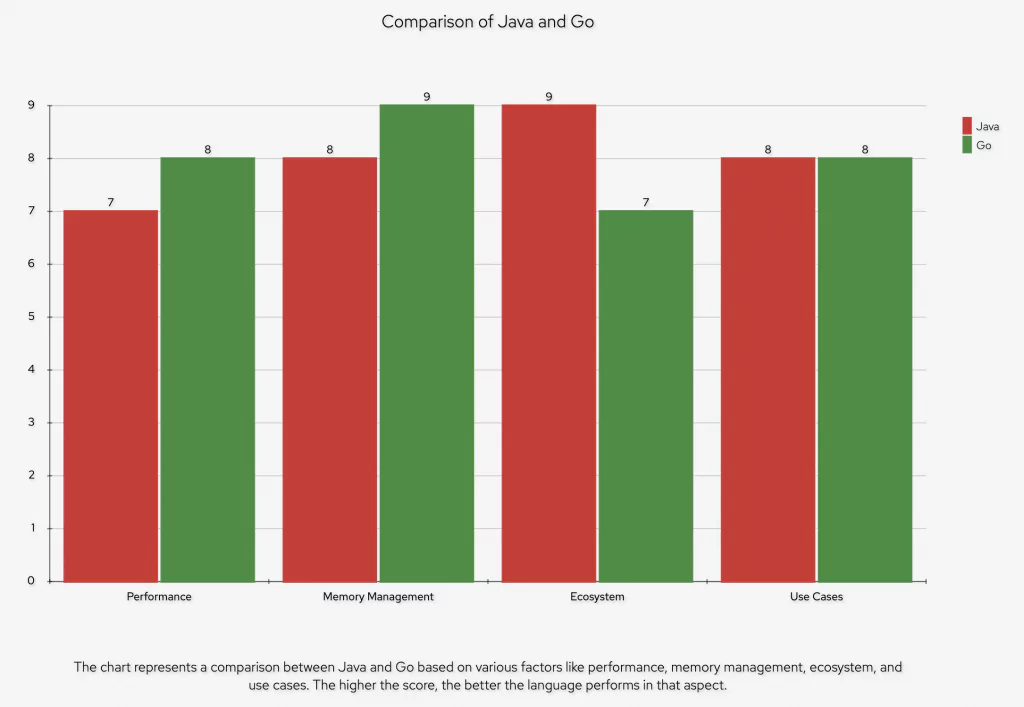
In the ever-evolving world of software development, choosing the right programming language can be a daunting task. This article, penned by Ronnie Payne and originally published on Developer.com, delves into a comprehensive comparison between two powerful contenders in the field: Java and Go. From their unique features to performance and use cases, we explore the strengths and weaknesses of each, aiming to provide insights that could guide your decision for your next software project or career path.

✅ AI Essay Writer ✅ AI Detector ✅ Plagchecker ✅ Paraphraser
✅ Summarizer ✅ Citation Generator
Key Takeaways:
- Java and Go are both powerful programming languages, each with its own unique set of features, strengths, and weaknesses.
- Java, created in the mid-1990s, is known for its stability, wide use, a large library of extensions and frameworks, and community support.
- Go, created by Google in 2007, is designed with a mindset towards performance, security, and ease of use and is typically used for large-scale software projects.
- The choice between Java and Go largely depends on your software development project’s specific needs and requirements.
Introduction
As reported by Ronnie Payne on Developer.com, developers today have a wide array of programming languages to choose from, each with its unique features, strengths, and weaknesses. Two such languages that have been gaining attention in the developer community are Java and Go. This article aims to comprehensively compare these two languages, examining their syntax, performance, support, and features to help you make an informed decision for your software project or career path.
Understanding Java and Go
Java, a general-purpose programming language with Object-oriented features, was created in the mid-1990s with the philosophy of “write once, run anywhere.” This means that programs created with Java can run on any platform that features the Java Virtual Machine (JVM), making it known for its stability, wide use, and community support.
On the other hand, Go, also known as Golang, is a programming language created by Google in 2007. It is designed to focus on performance, security, and ease of use, making it ideal for large-scale software projects, especially those that rely on concurrency and networking.
Comparing Java and Go
Syntax
Java’s syntax is similar to the C-family of languages, making it easier for programmers familiar with those languages to learn Java. Go, however, uses a more minimalistic approach to its syntax, favoring readability and maintainability.
Performance
Go supports concurrency and multi-threading, making it very efficient in handling multiple processing tasks simultaneously. Java also allows for concurrency, but its approach is a bit bulkier than Go’s, which can sometimes make Go applications more performant.
Memory Management
Java’s automatic memory management and resource allocation utility, known as a garbage collector, makes it so that Java programmers do not need to manually manage memory. Go also has a garbage collector, but it allows programmers to manually manage memory resources, giving them more control over memory usage.
Ecosystem
Java has a mature and vast developer ecosystem with many libraries, frameworks, and developer tools. Despite being a younger language, Go has a robust developer ecosystem, but it still has a ways to go before it compares to Java in this realm.
Use Cases
Java’s versatility makes it suitable for creating most types of applications, including desktop apps, mobile apps, enterprise software, video games, and embedded systems. Go, on the other hand, is excellent for concurrent intensive and network-reliant applications.
Here is a bar chart that illustrates the comparison between Java and Go based on various factors like performance, memory management, ecosystem, and use cases. The higher the score, the better the language performs in that aspect.

Conclusion
Both Java and Go have their own set of strengths, weaknesses, and use cases. The choice between the two will depend mainly on your software development project’s specific needs and requirements. Other factors to consider include your development team’s experience, personal preferences, and development environment. Regardless of your choice, both Java and Go are powerful languages that can help you develop powerful, scalable, and flexible applications.
Related stories:
Choosing Between Master’s Degrees in Computer Science vs Data Science
Java and PHP in Web Development: A Comprehensive Comparison
Java Language Evolution: Record Patterns Supercharge Expressive Coding
Follow us on Reddit for more insights and updates.





Comments (0)
Welcome to A*Help comments!
We’re all about debate and discussion at A*Help.
We value the diverse opinions of users, so you may find points of view that you don’t agree with. And that’s cool. However, there are certain things we’re not OK with: attempts to manipulate our data in any way, for example, or the posting of discriminative, offensive, hateful, or disparaging material.